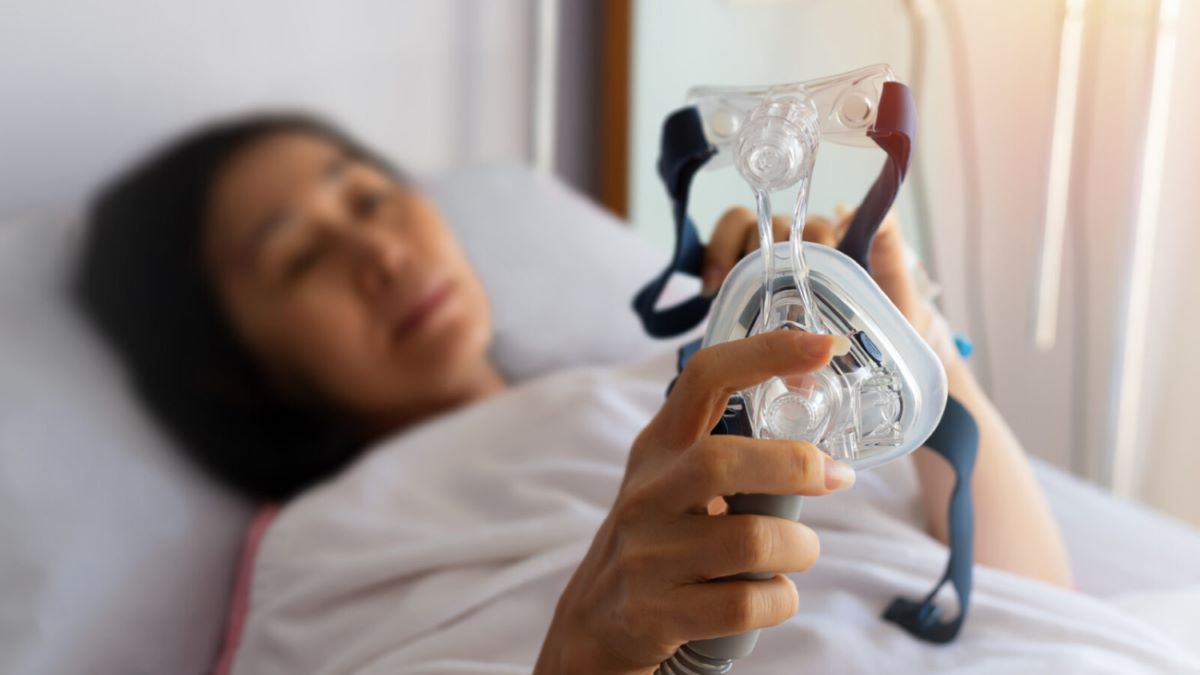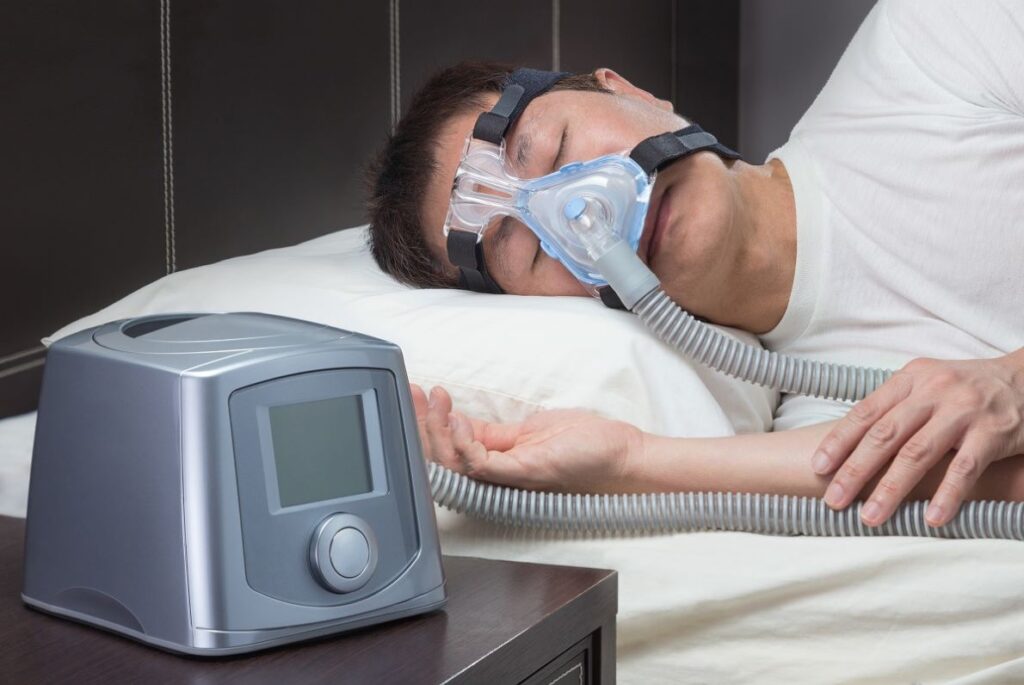
Understanding Sleep Apnea: The Hidden Disorder Disrupting Your Rest
Getting a full night’s sleep is one of life’s simple pleasures. But for millions of people, restful sleep remains elusive — not because of stress or noise, but due to a silent, often undiagnosed condition known as sleep apnea. This hidden disorder can do more than just cause fatigue; it can seriously impact your long-term health if left untreated.
In this guide, we’ll explore what sleep apnea is, how it affects your body, its causes and symptoms, and the most effective treatments available today — from CPAP therapy to lifestyle changes.
What Is Sleep Apnea?
Sleep apnea is a sleep disorder where breathing repeatedly stops and starts during sleep. These interruptions can occur dozens or even hundreds of times a night, reducing oxygen flow to the brain and body.
There are three main types of sleep apnea:
- Obstructive Sleep Apnea (OSA):
The most common type, caused by the relaxation of throat muscles that block the airway during sleep. - Central Sleep Apnea (CSA):
A less common form where the brain fails to send proper signals to the muscles that control breathing. - Complex Sleep Apnea Syndrome:
A combination of both obstructive and central sleep apnea.
When breathing stops, the body jolts awake briefly — often without you realizing it — disrupting your sleep cycle and preventing you from reaching deep, restorative sleep.
Why Sleep Apnea Is So Dangerous
The danger of sleep apnea lies in its stealth. Many people don’t realize they have it because the symptoms occur during sleep. Over time, these nightly breathing interruptions can lead to:
- Chronic fatigue and poor focus
- High blood pressure and irregular heartbeat
- Increased risk of heart disease and stroke
- Insulin resistance and type 2 diabetes
- Mood disorders, including depression and anxiety
The American Academy of Sleep Medicine warns that untreated sleep apnea can shorten life expectancy by increasing cardiovascular stress and inflammation.
Common Sleep Apnea Symptoms
Recognizing the signs early is key to getting help. Some of the most common sleep apnea symptoms include:
- Loud or chronic snoring
- Gasping or choking during sleep
- Waking up with a dry mouth or sore throat
- Excessive daytime sleepiness
- Difficulty concentrating or memory issues
- Morning headaches
- Irritability or mood changes
If your partner complains about your snoring or you often feel exhausted even after a full night’s sleep, it’s time to consider a sleep study.
Causes and Risk Factors
While anyone can develop sleep apnea, certain factors increase your risk:
- Excess weight: Fat deposits around the upper airway can obstruct breathing.
- Age: Risk increases with age, especially over 40.
- Gender: Men are more prone, though women’s risk rises after menopause.
- Family history: Genetic factors can contribute.
- Smoking and alcohol use: Both relax the airway muscles.
- Nasal congestion: Difficulty breathing through the nose can lead to OSA.
How a Sleep Study Can Help
A sleep study (also called polysomnography) is the gold standard for diagnosing sleep apnea. It records your breathing, oxygen levels, brain activity, and heart rate while you sleep.
Today, home-based Level 3 sleep studies are also available for convenience. After the results, your doctor or sleep medicine specialist can recommend the best treatment plan tailored to your condition.
Effective Sleep Apnea Treatments
Treating sleep apnea can significantly improve your sleep quality, energy levels, and overall health. Let’s look at the most common and effective options.

1. CPAP Therapy (Continuous Positive Airway Pressure)
CPAP therapy is the most recommended treatment for moderate to severe sleep apnea. It involves wearing a mask connected to a machine that delivers constant air pressure, keeping your airway open during sleep.
Many users notice improvements in sleep quality, energy, and mood within weeks.
2. Oral Appliances
Dentist-fitted oral devices can reposition your jaw or tongue to prevent airway collapse. These are often used for mild to moderate sleep apnea.
3. Lifestyle Changes
Simple lifestyle adjustments can make a huge difference:
- Lose excess weight
- Avoid alcohol and sedatives
- Quit smoking
- Sleep on your side instead of your back
- Maintain regular sleep routines
4. Surgery (in severe cases)
In rare cases, surgical procedures such as uvulopalatopharyngoplasty (UPPP) or nasal surgery may be recommended to remove tissue or correct structural issues in the airway.
Living Better with Sleep Apnea
While sleep apnea may sound intimidating, the good news is — it’s highly manageable. With diagnosis and proper treatment, most people regain restful, uninterrupted sleep and reduce their health risks dramatically.
Think of your sleep as a nightly reset button. By addressing sleep apnea, you’re not just sleeping better — you’re investing in your heart, brain, and overall well-being.
Final Thoughts
Sleep apnea is far more common than most people realize — but it doesn’t have to control your life. If you suspect you might have it, schedule a sleep study and talk to a sleep medicine specialist. With the right treatment plan, you can reclaim your nights, your energy, and your health.
FAQS
Sleep apnea is a sleep disorder where breathing repeatedly stops during rest. This disrupts oxygen flow and prevents deep sleep, leading to fatigue, heart strain, and other health issues. If untreated, it can increase the risk of heart disease, stroke, and diabetes.
Common signs include loud snoring, gasping for air during sleep, excessive daytime fatigue, and morning headaches. You might also experience poor concentration and mood changes. If these symptoms persist, a sleep study can help confirm the diagnosis.
Yes, mild cases of sleep apnea can often be managed with lifestyle changes such as weight loss, changing sleep positions, and avoiding alcohol or sedatives. However, moderate to severe cases may still require CPAP therapy or oral appliances prescribed by a sleep specialist.
People who are overweight, smoke, or have a family history of sleep disorders are at higher risk. Men over 40 are more prone, but sleep apnea can affect anyone — including women and even children.
